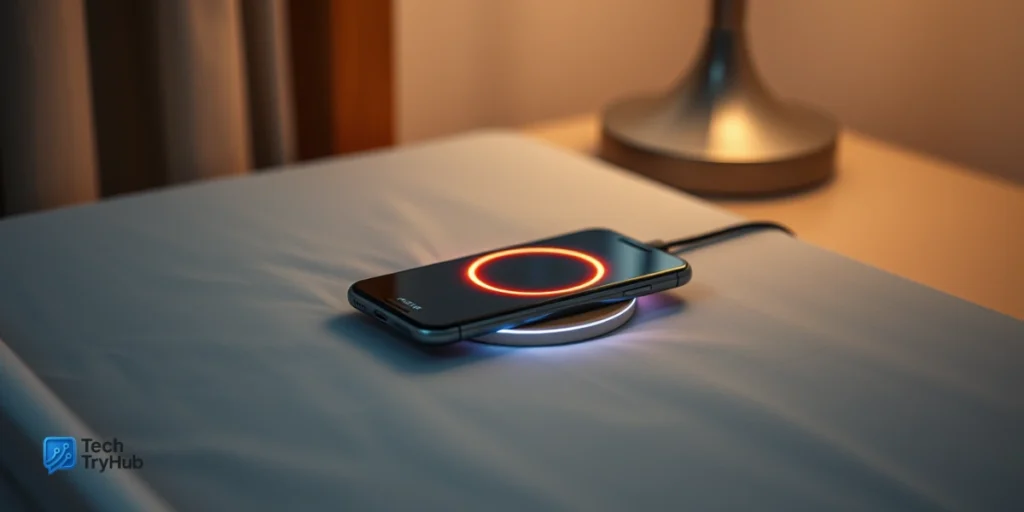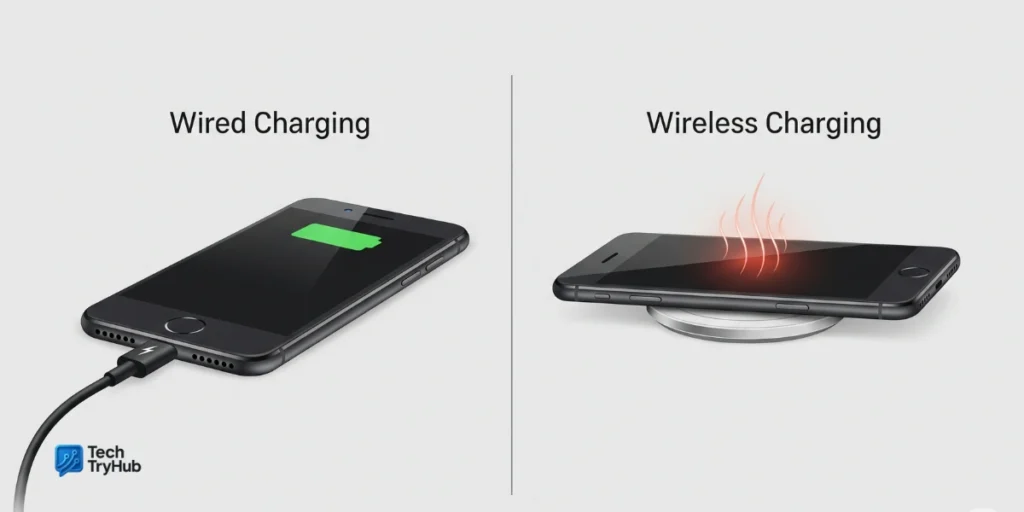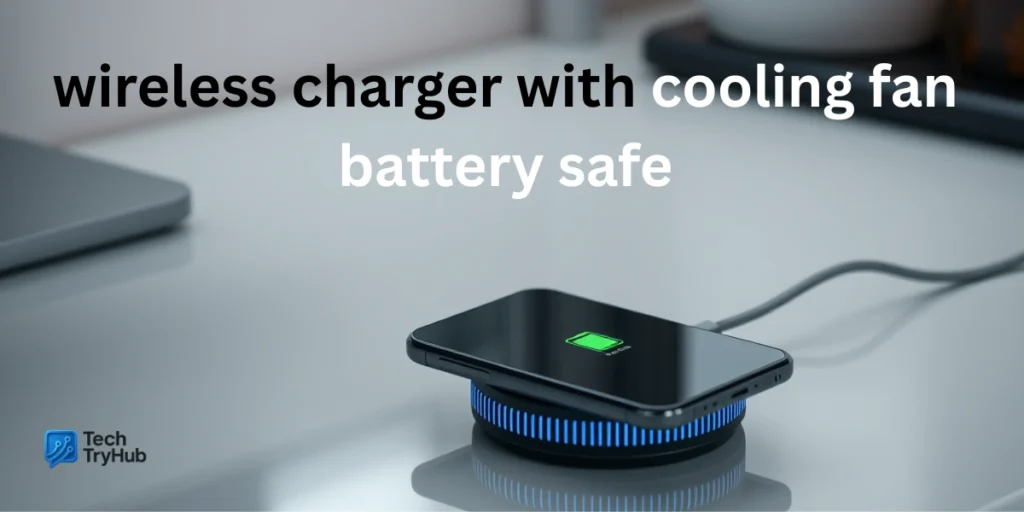Introduction: The Worry Behind the Glow
You drop your phone on a charging pad at night. The little light glows. It feels futuristic.
But the thought nags is wireless charging bad for battery health?
You’re not alone. From Reddit debates to tech blogs, people ask this daily. The truth is less scary than you think. Wireless charging isn’t inherently harmful. The real culprit is heat and how you use it.
Let’s unpack the myths, the science, and the safe habits that keep your battery healthy for years.
How Wireless Charging Actually Works (and Why Heat Matters)
Wireless charging (Qi standard) uses electromagnetic induction. Coils in your phone and charger align, generating current wirelessly.
Sounds simple. But here’s the catch:
- It’s less efficient than wired charging.
- That inefficiency turns into heat.
Example:
Place your phone on a pad slightly off-center. You’ll notice it feels warmer. That warmth is lost energy. And repeated heat is what wears lithium-ion batteries faster.
Key Fact: A study showed wireless charging can consume up to 40% more energy than wired when misaligned. That’s wasted as heat.
Key Takeaways:
- Wireless charging ≠ harmful by default.
- Heat buildup is the real enemy of battery health.
- Proper alignment and quality chargers minimize risk.

Does Wireless Charging Damage Battery Life?
Let’s compare the two methods side by side.
| Factor | Wired Charging | Wireless Charging |
|---|---|---|
| Efficiency | Higher | Lower |
| Heat Output | Lower | Higher (misalignments worsen) |
| Battery Wear Risk | Minimal | Slightly higher if unmanaged |
Expert Views
- Anker (charger manufacturer): Wireless charging is “not necessarily harmful” when done correctly.
- Android Authority: Heat, not wireless tech itself, is what matters most.
- Granite River Labs: Certified Qi chargers are designed with safety limits that protect batteries.
So the verdict? Wireless charging can be nearly as safe as wired if you avoid heat traps.
Key Takeaways:
- Wireless charging is safe with certified Qi chargers.
- Battery impact is minimal compared to poor charging habits.
- Heat from misalignment or cheap chargers is the main concern.

Real-World Risks & What Phone Makers Do About It
Ever notice your phone feels warm if you leave it overnight on a pad? That’s heat slowly working against your battery.
How Brands Respond
- Apple: iPhones now have Optimized Battery Charging and even a “80% limit” option to reduce long-term wear.
- Samsung: Galaxy devices include “Protect Battery,” capping charge at 85%.
- Google Pixel: Dynamically adjusts wireless charging speed to keep heat under control.
Some premium chargers even include built-in fans (like MagSafe accessories) to actively cool your phone.
💡 Tip: If your phone supports these features, enable them. They quietly extend battery lifespan.
Key Takeaways:
- Phone brands build smart charging limits to protect you.
- Overnight charging is safe if your phone regulates heat.
- A cheap pad with no heat management? That’s risky.

Smart Habits to Preserve Battery Life
Wireless charging is convenient. But habits decide whether it’s safe or harmful.
Best Practices
- Use certified Qi chargers – Don’t gamble with $5 knock-offs.
- Avoid thick or metal cases – They trap heat and slow charging.
- Charge in a cool spot – Never under pillows, blankets, or hot dashboards.
- Don’t always charge to 100% – Use built-in 80% or 85% caps.
- Mix wired & wireless – For efficiency, rotate methods.
Anecdote
I once left my Galaxy on a cheap pad overnight. By morning, it was warm and stuck at 100%. Within a year, battery health dropped faster than usual. Switching to a MagSafe-certified charger fixed the problem.
Key Takeaways:
- Good gear + cool environment = safe wireless charging.
- Avoid always charging overnight to 100%.
- Mix charging methods for balance.
Conclusion: The Real Truth
Wireless charging isn’t your battery’s enemy heat and bad habits are.
With the right charger, a cool environment, and smart settings, you can enjoy the convenience without guilt.
So next time you drop your phone on that pad, relax you’re not killing your battery.
👉 Share this guide with a friend who still thinks wireless charging is dangerous.
Your battery’s future health starts with one smart habit today.
FAQs: Wireless Charging & Battery Health
1. Is wireless charging bad for battery health?
No. It’s safe if you use certified chargers and avoid overheating.
2. Why does my phone get hot on wireless charging?
Because wireless transfer is less efficient—misalignment and cheap chargers worsen heat.
3. Can I wireless charge overnight?
Yes, if your phone has battery optimization features. Use 80% caps for extra safety.
4. Does wireless charging shorten lifespan faster than wired?
Not significantly. Heat is the only real risk, not the charging tech itself.
5. Should I remove my phone case when wirelessly charging?
Yes, if it’s thick or metal it can trap heat and reduce charging efficiency.
6. Is fast wireless charging worse for battery health?
It can create more heat. If you don’t need speed, stick to standard 5W or 7.5W pads.